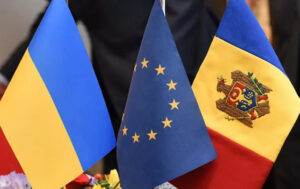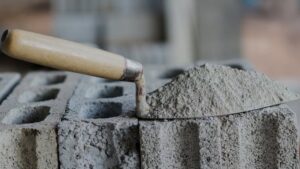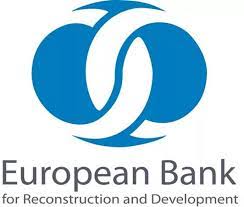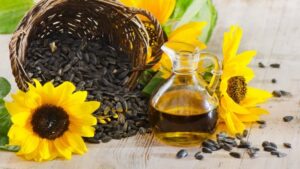
The membership negotiations began on Tuesday, a landmark move aimed in particular at signaling a vote of confidence in Ukraine’s future.
The European Union launched accession negotiations with Ukraine and Moldova on Tuesday, June 25, setting the fragile ex-Soviet states on a long path towards membership that Russia has tried to block. The landmark move is aimed in particular at signaling a vote of confidence in Ukraine’s future as Moscow has momentum on the battlefield almost two and a half years into the Kremlin’s invasion.
Ukraine’s President Volodymyr Zelensky called it a “historic day” ahead of the start of talks between officials from Kyiv and the EU’s 27 member states in Luxembourg. “We will never be derailed from our path to a united Europe and to our common home of all European nations,” the Ukrainian leader wrote on social media.
Ukraine and later its neighbour Moldova lodged their bids to join the EU in the immediate aftermath of Russia’s all-out assault in February 2022. The start of the talks marks just the beginning of a protracted process of reforms strewn with political obstacles that will likely take many years — and may never lead to membership.
Read more Subscribers only European Union approves opening of formal accession negotiations with Ukraine
Standing in the way along that journey will be not just Russia’s efforts at destabilisation but reticence from doubters inside the EU, most notably Hungary. But European Commission chief Ursula von der Leyen called the opening of talks “very good news for the people of Ukraine, Moldova, and the entire European Union. The path ahead will be challenging but full of opportunities,” she wrote on X on Tuesday.
So far, Ukraine – represented at the talks by Deputy Prime Minister Olga Stefanishyna – has won plaudits for kickstarting a raft of reforms on curbing graft and political interference, even as war rages. “Today is a historic day for Ukraine and Moldova, but also for the EU,” said Germany’s Europe minister Anna Luehrmann. “Both countries have made enormous progress in the area of the rule of law, the fight against corruption and freedom of the press.”
Complex process
Russia’s war in Ukraine has reinvigorated a push in the EU to take on new members, after years in which countries particularly in the Western Balkans made little progress on their hopes to join. The EU in December 2023 also granted candidate status to another of Russia’s former Soviet neighbours, Georgia. It likewise approved accession negotiations with Bosnia and has talks ongoing with Serbia, Montenegro, Albania and North Macedonia.
The meetings with Ukraine and Moldova on Tuesday will set off a process of screening of how far laws in the countries already comply with EU standards and how much more work lies ahead. Once that is done the EU then has to begin laying out conditions for negotiations on 35 subjects – from taxation to environmental policy.
It appears unlikely that there will be progress onto the next step in the coming six months, when Hungary – the friendliest country to Russia in the bloc – holds the EU’s rotating presidency. “It’s very difficult to say at what stage Ukraine is,” said Hungary’s Europe minister Janos Boka. “From what I see here as we speak, they are very far from meeting the accession criteria.”
The start of the talks resonates powerfully in Ukraine as it was a desire for closer ties with the EU that sparked protests back in 2014 that eventually spiralled into the full-blown crisis with Russia. The talks also come at a tense time in Moldova after the United States, Britain and Canada warned of a Russian “plot” to influence the country’s presidential elections coming up in October.
Wedged between war-torn Ukraine and EU member Romania, Moldova’s pro-Western authorities frequently accuse the Kremlin of interfering in its internal affairs. President Maia Sandu has accused Moscow – which has troops stationed in a breakaway region of the country – of aiming to destabilise Moldova ahead of the vote. “Our future is within the European family,” Sandu wrote on X. “We are stronger together.”
Le Monde with AFP

The Interdepartmental Commission on International Trade (ICIT) will review anti-dumping measures against imports of cement from Russia, Belarus and Moldova to Ukraine due to their expiration.
According to a report in the Uryadovy Courier dated May 22, 2024, the anti-dumping duties previously in force by the decision of the ICIT dated May 21, 2019, are extended for the duration of the review procedure.
It is noted that the Commission considered the relevant request for review from PrJSC “Dickergoff Cement Ukraine”, PrJSC “Ivano-Frankivsk Cement” with the support of PrJSC “Kryvyi Rih Cement”, and also studied the report of the Ministry of Economy on the results of the anti-dumping procedure for the review of customs duties due to the expiration of their validity.
“The request contains sufficient evidence that the termination of anti-dumping measures against imports into Ukraine of cement originating in the Russian Federation, the Republic of Belarus and the Republic of Moldova, applied by the Commission’s decision of 21 May 2019, is likely to lead to the resumption of dumping and injury,” the ICIT said in a statement.
The Ministry of Economy has been entrusted with the review of anti-dumping measures. Stakeholders are to register within 30 days.
According to Alyona Omelchenko, Partner and Head of International Trade Practice at Ilyashev & Partners Law Firm, who represented the interests of Ukrainian cement producers, the review process may take up to one year.
“This decision of the Commission is extremely important for the work of Ukrainian enterprises. The initiation of the review of anti-dumping measures by the ICIT will extend the period of application of duties and prevent dumped imports from entering the market until the final decision is made,” Omelchenko said in a press release.
As reported, in 2019, the ICIT applied anti-dumping duties on imports of cement clinkers and Portland cement to Ukraine under codes 2523 10 and 2523 29 at the level of 57.03% for cement from Belarus; 94.46% for cement from Moldova; 114.95% for cement from Russia. The duties were set for a period of five years.

The European Bank for Reconstruction and Development (EBRD) has appointed Arvid Türkner, who has held a similar position in Turkey since November 2017, as its new Managing Director for Ukraine and Moldova from May 1, 2024, the bank said in a press release on Wednesday.
“Ukraine is a priority area for EBRD investments, with EUR4.1 billion sent there during the wartime period. Türkner will replace Matteo Patrone, who after five years of work (in Ukraine) will hold the position of EBRD vice president for the banking sector,” the release stated.
The EBRD notes that future wartime and reconstruction investments in Ukraine will be underpinned by the EUR4bn paid-up capital increase approved by shareholders late last year.
“Arvid Türkner’s outstanding performance in his previous role in Turkey gives us great confidence that this vital portfolio is in safe hands,” the statement quotes EBRD First Vice President Jürgen Rigterink as saying.
It is indicated that Türkner will oversee the development of the EBRD’s program for Ukraine, focusing on five wartime investment themes: support for energy security, vital infrastructure, food security, trade and the private sector, as well as political dialogue to help Ukraine and Moldova move towards EU membership.
It is reported that Türkner, a German national, joined the EBRD in January 2009 from the German development bank DEG as a senior banker in the financial institutions group in Moscow. In October 2013, he was promoted to regional development director and deputy head of the Moscow office, and became head of the office in April 2015.
After moving to London in early 2017 as director of corporate debt, Turkner was appointed to his current role as managing director in Turkey in November 2017, where he successfully led the bank’s crisis response to the devaluation of the lira in 2018. Under his leadership and despite recurring macroeconomic volatility, the bank’s business in Turkey has continued to grow significantly: the portfolio is currently valued at EUR7.5bn, with 246 active projects and EUR5.8bn of operating assets. In 2023 alone, the bank signed 48 projects worth EUR2.48bn.

Moldovan Agriculture and Food Minister Vladimir Bola will meet on Monday with sunflower seed producers and processors due to the difficult situation in his country with sunflower oil production. According to the Moldovan news agency Infotag, the decision to discuss the problem was made after Floarea Soarelui, the largest oil producer, shut down two plants. The producers said they had no raw materials, as farmers refused to sell their seeds at the current market price, and sunflower imports are strictly licensed.
“Today, Moldova’s sunflower seed stocks are about 350 thsd tonnes, so any statements about lack of stocks are speculation. At the same time, the pricing policy should be objective, fair and responsible towards the end consumer,” Bola wrote on Facebook.
He emphasized that “by abandoning political statements and relying solely on the economic component,” the Ministry of Agriculture of Moldova will provide a platform for dialogue between seed producers and processors.
“Each party will provide real figures so that we can make decisions and find viable solutions for the new sunflower harvest,” Bola said.
As reported, Moldova has extended the licensing of sunflower seed imports from Ukraine for three months.

President of the European Council Charles Michel said that the European Council has decided to start negotiations on the accession of Ukraine and Moldova to the EU.
“The European Council has decided to start negotiations on the accession of Ukraine and Moldova. The European Council has granted candidate status to Georgia. And the EU will start negotiations with Bosnia and Herzegovina as soon as the necessary degree of compliance with the membership criteria is achieved, and invited the Commission to submit a report by March with a view to making such a decision,” he wrote on Twitter.

Federal Chancellor Karl Nehammer during a meeting with members of the National Council in the main committee on EU issues categorically opposed the “accelerated procedure” of Ukraine and Moldova’s accession to the European Union, the press service of the Austrian parliament reports.
“Nehammer told FPO MPs Petra Steger, Christian Hafeneker and Axel Kassegger that Austria would not agree to negotiate Ukraine’s accession under the current conditions. There should not be any preferential treatment for Ukraine, especially in relation to Bosnia and Herzegovina, which is also currently in accession negotiations,” the statement said.
He also noted that the President of the European Commission Ursula von der Leyen did not hold consultations before announcing the prospect of negotiations on Ukraine’s accession.
Separately, Nehammer noted that in order for the EU to be “suitable” for enlargement, internal reforms must be carried out.
“In general, Austria continues to follow the EU line when it comes to solidarity with Ukraine, but without violating its neutrality,” Nehammer explained. “It is primarily about financial assistance to support Ukraine as a ‘state as a whole,'” the statement said.